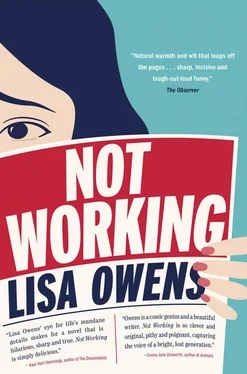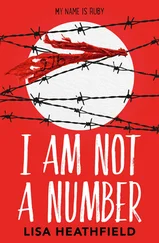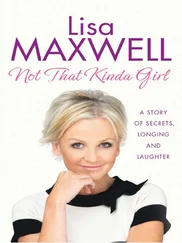“Oh my God. That’s terrible.” I allow enough seconds to pass, stirring my porridge. “Maybe…maybe it’s different for men and women. The men’s locker-room ones make them look thinner, and the women’s ones fatter.”
“We should donate,” Luke says, tapping quickly, so I shelve the subject, pending further investigation.
I go to a nearby bar with some of the other “young people”: Bea the intern and two recent graduates, long-limbed, large-eyed girls like gazelles, with masses of hair and lovely clothes I can’t believe their salaries cover. Because I am the oldest by some years, I feel obliged to buy the drinks.
“You know how it goes,” Bea, on her third nine-pound martini, is saying, and I nod, although I don’t, really. She’s spent the past half-hour talking about her ex-boyfriend Fox (not a nickname), who’s been sitting outside her new guy’s house for hours in taxis that must, though I’m the only person concerned by this detail, cost him a medium-sized fortune. The current boyfriend isn’t at all pleased. “I reckon he’s more worried about his daughter’s safety than mine,” says Bea indignantly.
“Wait,” I say. “The music producer has a kid ?”
“Two. Marlie’s three, and Rhys is sixteen.”
“Sixteen! How old are you?”
“Nineteen,” says Bea, sucking on an olive, “next month. Rhys is not my biggest fan. I’m very much the evil stepmother.”
I smile into my house wine.
“And James is how old?” asks Jemima, one of the graduate girls.
“Forty-two? I can’t remember exactly.”
“What do your parents think?” the other one, Lara, asks.
“About what?”
“About the fact your boyfriend is more than twice your age.”
“Mum flirts with him. She does with all my boyfriends. Dad and him go hunting together.” Bea shrugs. “They think he’s great.”
“What do you two talk about?” I ask.
“Music, obviously. His psycho ex, my psycho ex. Therapy, parenting, our screwed-up families.” She frowns, suddenly defensive. “Why? What do you and the doc talk about?”
“Oh, all kinds of things,” I say, playing for time. My mind has gone blank, save for this morning’s gym-mirror tussle. “You know, normal stuff.”
“Such as?” Bea insists.
“I don’t know! Health. Science. Fitness. World affairs.” It gets worse the more I say, so I stop. Meanwhile, Bea and the graduate girls exchange round-eyed looks of naked pity.
When the lights get brighter, I’m finally forced to accept everyone’s refusal of one more and gather together all my many things: so many layers and tote bags to wrestle onto my body.
“Text me to let me know you got home okay, okay?” I say, first to Bea, hugging her, then to the other two, Jemima-and-Lara, whom I also embrace in what I hope comes across as a big-sisterly way, seizing their narrow, elegant shoulders, repeating, “Promise, promise you’ll text me when you’re home safe?” and they say they will.
—
At my Tube stop, I wait for the lift up to ground level behind a crowd heaving with the same intent, and somehow miss out on two separate loads before I manage to get inside. At the entrance to the station, passing through a quiet, hard-hatted cluster of men ready to begin their night’s work underground, I am briefly and passionately appalled that they have to wait for the straggling pub-dregs to leave before getting on with the vital task of keeping London running.
Breaking into a jog through the dark, my bags (always so many bags) lift and pound at my sides, while in my earphones an anthemic song swells, a favorite from years ago, when, fresh out of university and new to the city, all my burgeoning hope and ambition seemed totally reasonable and absolutely achievable.
In the kitchen, I hack clumsy hunks from the block of cheddar I find in the fridge, then inspired by a craving for more salt and fat, smear each crumbling piece with lumps of peanut butter. Stuffing down my improvised dinner, I fix a solemn stare on my phone and wait to hear from my young colleagues, until it occurs to me that none of them have my number.
“Has that crack always been there?” I run my eyes along the hairline streak bisecting our bedroom ceiling like lightning. It’s barely visible, and the effort of tracking its path has the disturbing effect of watching it grow in real time.
“That’s what you’ve been thinking about?” Luke, on top of me, says into my neck.
“I just noticed it now, this second,” I say, squeezing him tight.
He flops over onto his back. “Show me.” I point. “Yes, definitely. Or no, hang on. Maybe I’m thinking of the one on the landing.”
“You mean the one on the stairs?”
“There’s one on the stairs?”
“There’s one on the landing?” I’m struck by a terrible thought. “Wait — do you think it’s the buddleia? The roots — is this why we should have got rid of it?”
“We didn’t get rid of it?” Luke asks, up on an elbow, brow pinched, tone sharp and disapproving. I feel like a child, a failure, an utter waste of space.
“Hold on. I made an informed decision not to.” I look up again. “No, I’m pretty sure that’s been there since we moved in,” I say with more authority than I feel. “Let’s keep an eye on it and get someone in to take a look if it gets worse. Okay?”
Luke looks at the crack and then at me. “If you say so,” he replies.
Giving blood might well turn out to be the best thing I can do with my life. In which case, it’s time to stop talking about it and start getting it out there.
“I was wondering whether you’ll be in on Saturday…”
“For another one of your visits, I suppose,” says my doting grandmother.
Weighing up the pros and cons of this small, dusty plant versus that bunch of pink dahlias, I fast-forward a few days to the flowers dead and brown, and take the plastic pot to the counter.
—
“Isn’t that thoughtful?”
In the dark hallway, Grandma turns it this way and that in both hands to examine the stubby growth from all angles.
“The lady in the shop said it wouldn’t need much looking after: just stick it by a window and water when it’s looking dry.”
“Like me,” she says, and I wonder if flowers would have been better after all.
“Tell me,” says Grandma, now settled in the kitchen, pushing a mug in my direction, “whatever happened to that nice doctor you were seeing?”
“Luke? We’re still together. Why do you ask?”
“Oh, I haven’t seen him for a while; I suppose I assumed he’d left the scene. He didn’t come to your grandfather’s funeral, of course.” She sniffs, picking at something on her skirt. “That was poor form, we thought.”
I decide against prodding the hornets’ nest “we.”
“He was working. He sent you a card, remember? Saying how sorry he—”
“And what about a wedding, then?” she interrupts, as if returning to the main business from which I’d willfully put her off course.
“Luke and me? Not in the cards. It’s not really us: all that fuss and expense.”
“Mm.” Grandma cocks her head. “I suppose if there aren’t any children, there’s no real rush. Besides, it keeps you on your toes.”
“Well, ha, yes, but no, and, also, you know, if there were children, a wedding isn’t…” I start again. “It’s totally fine not to, for my generation.” Her eyes slide down to my stomach, but I ward them off with folded arms. “Not that there are any children, yet. We’re waiting until he’s fully qualified.” I hold the tea under my chin, bathing my face in its warm, wet breath. “I think that’s what we’ve agreed,” I say, more to myself than to Grandma.
Читать дальше












